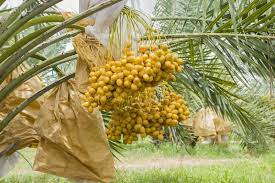Governor Abubakar Bello of Niger has inaugurated the planting of 10 million trees of shea butter trees in Bosso Local Government Area of the state toward developing the economic value chain of the commodity.
Bello explained that the hybrid shea trees would be planted on 20 hectares of land at Kodo village, to increase the state’s revenue base and boost the country’s economic fortunes.
The governor said that the exercise was in continuation of his administration’s strategic positioning of the state to fully tap into the benefits of the shea value- chain for accelerated economic transformation.
“These shea trees have some distinctive features such as short gestation period of seven years from the traditional 15-20 years, and also produce quality shea fruits and in more quantities.
“Therefore, these hybrid tress have the potentials to turn around the economic fortunes of the state in particular and Nigeria at large.
“It is no longer news that Niger State has the highest number of shea trees in Africa and the world over, it is very important that we take full advantage of these economic trees in the state.
“The shea value-chain is one big circle that has the potentials of engaging thousands of women and youths across the state.
“It will interest you to know that the global shea butter market has grown rapidly overtime becaise of it’s increased use for confectionaries, cosmetics and pharmaceutical ingredients,” he said.
He noted that for over three decades now, Nigeria was adjudged the top producer of unrefined shea butter in the world with an annual production of 500,000 metric tons and a trade value of $400,000 plus.
Bello said that the state government had enacted a law prohibiting the felling of any economic tree in the state.
The governor said that government would not hesitate to punish anyone or group found to contravene the law.
Earlier, Dr Daniel Galadima, the state Commissioner for Environment and Forestry, said that the shea value-chain would ensure that the state government tapped revenue from the state’s abundant forest resources, to enhance its Internally Generated Revenue (IGR).
“This will make Niger state less dependent on the monthly handout from the centre,” he said.
Galadima explained that the trees would be planted in clusters of one million per annum for 10 years.
He said that the exercise would involve training of 100,000 women and youths in forest management and commercial seedlings farming.
The Commissioner said that other benefits of the value chain included improved processing of shea nuts in rural communities through the installation of cluster processing centres and needed infrastructure, state legislation against tree cutting and better community awareness of the economic value of shea trees.
He added that that the exercise was organized by the state government, in collaboration with the Shea Products Association of Nigeria.












